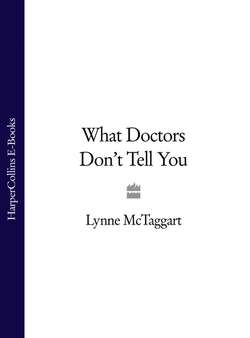Читать книгу What Doctors Don’t Tell You - Lynne McTaggart, Lynne McTaggart - Страница 29
FOETAL MONITORING DURING LABOUR
ОглавлениеWhen labour commences and you go to hospital to have your baby, chances are that doctors will want to strap you into an electronic foetal monitor to routinely monitor the foetal heart rate. However reassuring, this exercise appears to make no difference to the health of either you or your baby, according to British research. Interpretation of the read-outs varies widely among practitioners. What foetal monitoring does do, however, is increase the likelihood of obstetrical intervention. Women given EFM have more than a 5 per cent higher likelihood of a forceps-type delivery and a greater chance of having a caesarean than those who employ a Doppler (handheld) ultrasound device, according to British research.43
The New England Journal of Medicine reluctantly concluded, after examining seven major studies, that this form of ultrasound provides no benefits to newborns, even premature ones. In reviewing the data, the Journal accepted that the study was the final proof that foetal monitoring is ineffective in decreasing the chances of a stillbirth, a low Apgar score or neurological problems in high-risk infants. It only increases the chances of a woman having a caesarean section.44 This conclusion was reached following a study, carried out in several medical centres in the state of Washington, which tested the widely-held view that high-risk babies who were electronically monitored died less frequently and had better outcomes than low-risk babies monitored by simple auscultation (trumpet stethoscopes) or other sonic aids. The study, which looked at premature infants in several hospitals, found that those babies monitored had no better chance of being born live than those monitored by ordinary Doppler auscultation. The final death-knell was sounded when a major California study found that the test’s false-positive level – reporting a problem where there is none – is an alarming 99.8 per cent, resulting in thousands of unnecessary caesareans.45
Even the former head of the Oxford Perinatal Unit, Iain Chalmers, has gone on record to say that the major, properly conducted studies show that the mortality rate among technologically monitored babies was higher than that among controls.46
‘A review of this evidence was first published eight years ago,’ wrote Chalmers,47 ‘and the lack of evidence to support the use of this widely adopted form of obstetric technology has been reiterated at intervals since then.48 For obvious reasons, it is the kind of evidence that some obstetricians would rather overlook.’
Unless you are suspected of having twins, you might be wise to avoid knee-jerk ultrasound testing, particularly before your 20th week of pregnancy when the baby is still forming.
